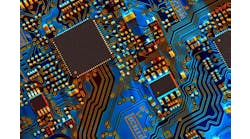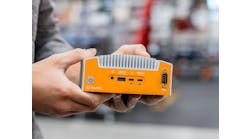Back when I began my post-college career as a controls engineer, I was put on a development team working on a new generation of machinery for the fiber optics industry. The controls architecture we were using was somewhat dated; okay, even for back then, it was very dated. A separate motion processor, a programmable logic controller (PLC) and a human-machine interface (HMI) processor, all in a Versa module Eurocard (VME) rack talking dynamic data exchange (DDE) protocol so the HMI program could understand and display the process parameters on a monochrome monitor with a touchscreen overlay.
The reason for the dated system components was to better match the existing hardware used in other areas of the factory for simplification of spares, maintenance and documentation. Let me say here that I do not wish that architecture on anyone ever again.
Times have changed, thankfully, and today things are much simpler. Thanks to the evolution of PC processors, now all three of the functions that used to be separate processors—the motion processor, the PLC and the HMI processor—can all be software modules or even just one software suite running on a single powerful central processing unit (CPU) inside an industrial PC (IPC). Also, the form factor of that IPC can be quite a bit different than the desktop or rack versions of days past.
In factory automation, this quest for enhanced efficiency, reliability and durability keeps driving the development and adoption of new IPC designs. One such advancement is the panel PC—a combined unit of a PC and a touchscreen HMI. These devices are increasingly becoming the first choice for controlling automation equipment due to their numerous advantages and increased processing power. The benefits of using a panel PC as the central industrial computer in a factory setting, highlights their robustness, lack of moving parts, wide temperature specifications and improved water and dust resistance.
Panel PCs are renowned for their robust design, which makes them exceptionally suited for the harsh environments typical in industrial settings. Their rugged construction often includes reinforced housings and shock-resistant components designed to withstand vibrations, impacts and other mechanical stresses. This durability is crucial for maintaining operational uptime in factories where equipment is subjected to frequent and intense use.
The robustness of panel PCs also extends to their ability to handle the physical demands of industrial environments. They are built to endure harsh conditions such as high temperatures, humidity and exposure to various chemicals. This ruggedness translates into fewer breakdowns and lower maintenance costs, contributing to increased productivity and operational efficiency.
One of the most significant advantages of panel PCs is their lack of moving parts, such as fans and rotating hard drives. Panel PCs typically use solid-state drives (SSDs) and passive cooling systems.
Industrial environments often experience extreme temperatures, ranging from freezing cold to intense heat. Panel PCs are designed to function reliably across a broad temperature range. Many models are engineered to operate effectively in temperatures ranging from -20 °C to +60 °C (-4 °F to +140 °F), ensuring their performance remains consistent regardless of external temperature fluctuations.
This wide temperature range capability is essential for maintaining continuous operations in factories where temperature extremes are common due to environmental conditions or the nature of the manufacturing process. Panel PCs' ability to perform optimally under such conditions reduces the risk of overheating or freezing, which can otherwise lead to system failures and costly downtime.
Factory environments are often subject to dust, debris and moisture, all of which can pose significant challenges. Panel PCs address these challenges with enhanced ingress protection (IP) ratings, which indicate their resistance to dust and water.
Panel PCs with high IP ratings, such as IP65, IP66 or even IP67, signify that the devices are protected against dust ingress and can withstand water jets or even immersion in water. This makes panel PCs highly suitable for environments where exposure to liquids and particulates is a concern, such as in food processing or chemical manufacturing.
Additionally, the smooth, sealed surfaces of panel PCs facilitate cleaning. This ease of maintenance is crucial in industries that require frequent sanitization or cleaning to comply with hygiene standards.
The enhanced water and dust rating helps ensure that panel PCs maintain their operational reliability in challenging corrosive or conductive environmental conditions. By preventing contaminants from affecting internal components, these devices reduce the likelihood of malfunctions and extend their operational lifespan.
The panel PC is a great choice for industrial applications due to its robustness, lack of moving parts, wide temperature tolerance and superior water and dust protection. By integrating a PC with a touchscreen HMI into a single unit, panel PCs simplify system architecture while offering a host of practical benefits. These advantages lead to increased operational efficiency, reduced maintenance requirements and enhanced reliability, making panel PCs an indispensable tool for modern factory lines.





